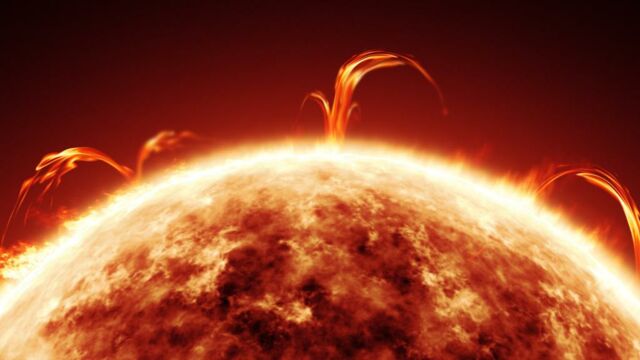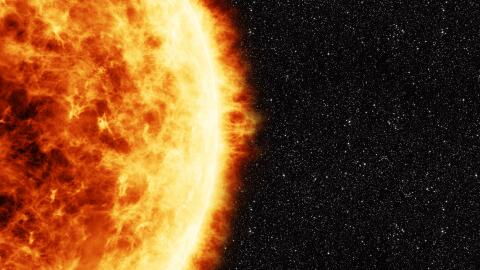Solar flares are large eruptions of electromagnetic radiation from the Sun which can last from minutes to hours. As per aNewsweekreport, the Sun has been sending off a series of solar flares, which are so strong that it is set to cause a geomagnetic storm on October 4.
Discover our latest podcast
As per the data by Space Weather Prediction Centre (SWPC), there have been three flares recorded at 4:15 p.m. ET on October 1, 10:25 p.m. ET on October 1, and 4:25 p.m. ET on October 2. These flares have been increasing from mid-M-class to X-class, which is the strongest kind of flare.

Geomagnetic storm forecast
Due to the intensity of the solar flares, the SWPC issued a space weather notice which announced that there would be a moderate-strength G2 geomagnetic storm on October 4.
The impact of this storm would be that there could be power grid fluctuations, problems in radio communication and would even lead to the creation of auroras over many places such as New York, Wisconsin and Washington State.

How solar flares affects Earth?
According to Newsweek, solar flares can disrupt life on Earth by affecting radio communication networks as well as military aviation.
George Ho, a space physicist at Johns Hopkins Applied Physics Laboratory, is quoted by the report as saying,
These types of disturbances affect the aviation and global navigation satellite systems communities in the civil dominant.
In addition, the military also relies heavily on high-frequency communication.
According to Mike Hapgood, a space weather scientist at the STFC Rutherford Appleton Laboratory, civil aviation will also be affected by the solar flares. He said,
The main industry affected by high-frequency radio blackouts is civil aviation—and specifically long-range communications to aircraft over oceans and remote land areas where there is no ground-based VHF radio network.
Sources used:
Newsweek: ‘Sun Unleashes Series of Huge Solar Flares Sending Storms Racing at Earth’
Read more:
⋙ Astronauts may no longer be able to go into space for this concerning reason
⋙ NASA's James Webb Space Telescope reveals a new exoplanet with CO2, is it habitable for humans?
⋙ A sunspot so huge that it’s affecting the Sun: How will it impact Earth















